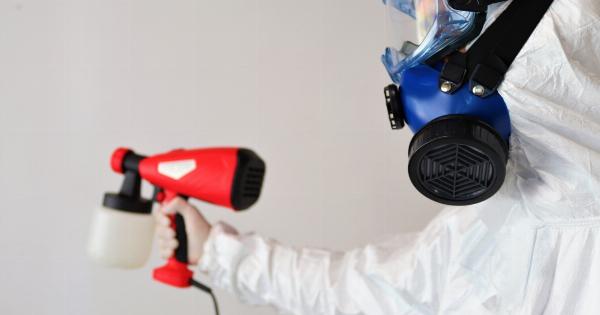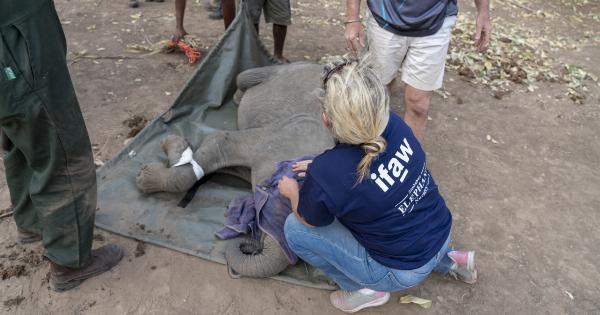Listeriosis is a foodborne illness caused by the bacterium Listeria monocytogenes. Although this infection is rare, it can have severe consequences, especially for pregnant women.
Listeriosis can lead to miscarriage, stillbirth, premature delivery, or serious health complications for the mother and baby. Understanding the methods of transmission is crucial to prevent and manage this infection during pregnancy.
1. Ingestion of Contaminated Food
The most common method of transmission of Listeria during pregnancy is through the ingestion of contaminated food. Listeria bacteria can be found in various food sources, including:.
- Raw and undercooked meats
- Unpasteurized dairy products
- Soft cheeses made from unpasteurized milk
- Refrigerated smoked seafood
- Precooked deli meats and hot dogs
Pregnant women should avoid consuming these foods to reduce the risk of Listeria infection. It is important to thoroughly cook meats, choose pasteurized dairy products, and avoid high-risk food items.
2. Cross-Contamination in the Kitchen
Listeria can spread from contaminated surfaces and utensils to food items if proper hygiene practices are not followed in the kitchen. To prevent cross-contamination:.
- Wash hands with soap and water before handling food
- Use separate cutting boards for raw meats and produce
- Clean and sanitize countertops, utensils, and kitchen equipment regularly
- Avoid using cracked or damaged utensils or containers
By maintaining good hygiene practices, pregnant women can minimize the risk of Listeria transmission from the kitchen environment.
3. Ingestion of Contaminated Water
Listeria can also be present in contaminated water sources. This can happen due to inadequate treatment of municipal water supplies or contamination of private wells. Pregnant women should take precautions to ensure the safety of their drinking water:.
- Drink only treated and properly chlorinated water
- Avoid consuming water from questionable sources, such as untreated streams or ponds
- If using a private well, regularly test and treat the water
By ensuring the safety of the water consumed, pregnant women can reduce the risk of Listeria infection.
4. Person-to-Person Transmission
Although rare, person-to-person transmission of Listeria can occur. This usually happens when a pregnant woman with Listeriosis passes the infection to her baby during pregnancy or delivery.
It is essential for pregnant women to practice good hygiene and avoid close contact with individuals suffering from Listeriosis or any other infectious illness.
5. Transmission from Animals
Listeria can be present in the feces of animals, such as cattle and poultry, without causing any symptoms in the animals themselves. Pregnant women should take necessary precautions when exposed to animals:.
- Avoid handling animal feces without gloves
- Thoroughly wash hands after touching animals
- Ensure that meat and dairy products are properly prepared and cooked
These measures can help prevent the transmission of Listeria from animals to pregnant women.
6. Impact of Listeria Infections on Pregnancy
Listeria infections can have serious consequences for pregnant women and their unborn babies. The infection can lead to miscarriage, stillbirth, premature labor, or a life-threatening infection in the newborn.
If a pregnant woman experiences symptoms such as fever, muscle aches, nausea, or diarrhea, she should seek medical attention promptly.
7. Prevention and Management
Prevention is crucial to avoid Listeria infection during pregnancy. Some key preventive measures include:.
- Avoiding high-risk foods
- Thoroughly cooking meats and poultry
- Choosing pasteurized dairy products
- Avoiding cross-contamination in the kitchen
- Ensuring the safety of drinking water
- Practicing good personal hygiene
If a pregnant woman is diagnosed with Listeriosis, she may be prescribed antibiotics to treat the infection and prevent harm to the fetus. It is essential to consult healthcare professionals for appropriate diagnosis and management.
Conclusion
Listeriosis is a rare but potentially severe infection during pregnancy. Understanding the methods of transmission and taking necessary preventive measures can help reduce the risk of Listeria infection.
By avoiding high-risk foods, practicing good hygiene, and seeking prompt medical attention if symptoms arise, pregnant women can protect themselves and their unborn babies from the complications associated with Listeriosis.






























